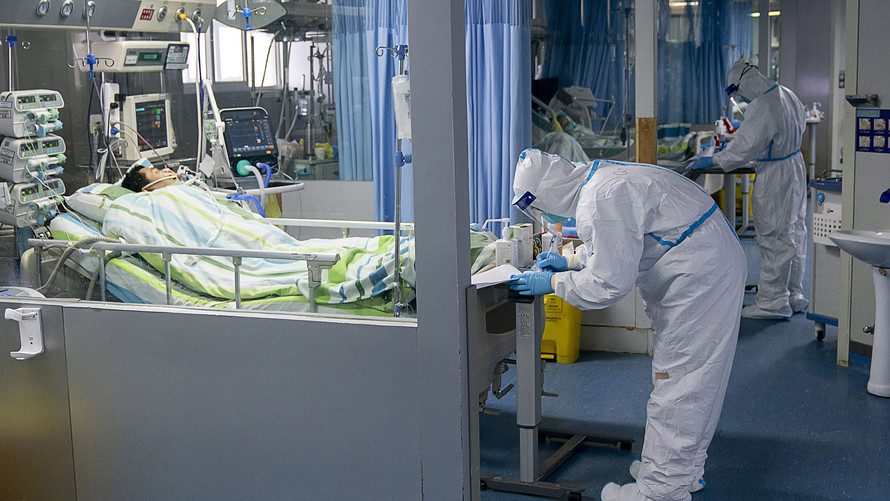

In just the last few days we have been faced with the reality that we are living in a global pandemic caused by COVID-19 – the corona virus. This is not the flu and the number of deaths is rising each day.
About 80% of people infected with the virus will have relatively mild symptoms but are still carriers of the virus and they can infect others – stay out of crowds – social distancing is the only way right now to stop the spread! 20% of people become more seriously ill and it can be fatal.
Medical experts and researchers still don’t know everything about it. But, they, and ultimately, we now know what happens in the body once it’s there. In short, it hijacks your cells and can overwhelm the lungs making breathing difficult requiring breathing support (a ventilator) and additional treatment. It can also travel to the GI system and land on the heart, kidney and liver causing serious damage.
The best explanation I’ve read yet comes from a collaboration of health professionals, researchers and scientists and was published in the New York Times just today. I’ll cite the reference if you would like to read the entire article.
The virus is spread through droplets transmitted into the air from coughing or sneezing, which people nearby can take in through their nose, mouth or eyes. The viral particles in these droplets travel quickly to the back of your nasal passages and to the mucous membranes in the back of your throat, attaching to a particular receptor in cells, beginning there.
Coronavirus particles have spiked proteins sticking out from their surfaces, and these spikes hook onto cell membranes, allowing the virus’s genetic material to enter the human cell.
That genetic material proceeds to “hijack the metabolism of the cell and say, in effect, ‘Don’t do your usual job. Your job now is to help me multiply and make the virus,’” said Dr. William Schaffner, an infectious disease specialist at Vanderbilt University Medical Center in Nashville.
How does that process cause respiratory problems?
As copies of the virus multiply, they burst out and infect neighboring cells. The symptoms often start in the back of the throat with a sore throat and a dry cough.
The virus then “crawls progressively down the bronchial tubes,” Dr. Schaffner said. When the virus reaches the lungs, their mucous membranes become inflamed.
That can damage the alveoli or lung sacs and they have to work harder to carry out their function of supplying oxygen to the blood that circulates throughout our body and removing carbon dioxide from the blood so that it can be exhaled.
“If you get swelling there, it makes it that much more difficult for oxygen to swim across the mucous membrane,” said Dr. Amy Compton-Phillips, the chief clinical officer for the Providence Health System, which included the hospital in Everett, Washington.
The swelling and the impaired flow of oxygen can cause those areas in the lungs to fill with fluid, pus and dead cells. Pneumonia, an infection in the lung, can occur.
Some people have so much trouble breathing they need to be put on a ventilator. In the worst cases, known as Acute Respiratory Distress Syndrome, the lungs fill with so much fluid that no amount of breathing support can help, and the patient dies.
People with compromised immune systems and underlying health issues like diabetes or other chronic diseases have a higher risk of developing serious symptoms. So, that sounds to me that it’s just not the elderly at risk. We already have an epidemic of diabetes with roughly a third of our population pre-diabetic. One thing for sure, we all need to keep our immune systems strong. If you have a cold or flu, get rid of it. Drink liquids and get rest. Plus, eat the rainbow of colors in real food to protect your body against inflammation and build immunity. Foods like berries, pomegranates, eggplant, nuts, seeds, green leafy vegetables all nourish us – either fresh or frozen. Grocers will soon re-stock their shelves. In the meantime, make soups and limit processed foods in boxes that lack nutrients and fiber that our bodies rely on. If you have flu-like symptoms, get tested when the test is available. If you test positive isolate yourself to not spread the virus to others.
Staying out of crowds, boosting your immunity and great nutrition are your best defenses right now.
Photo below is strainght off my kitchen counter.

For just $5.oo,, you can own a guide to starting your child on the healthiest path possible. This guide includes Infant and toddler recipes based on the world-famous Mediterranean Diet. It includes over 30 recipes and all the information you need to help your child live the healthiest life.